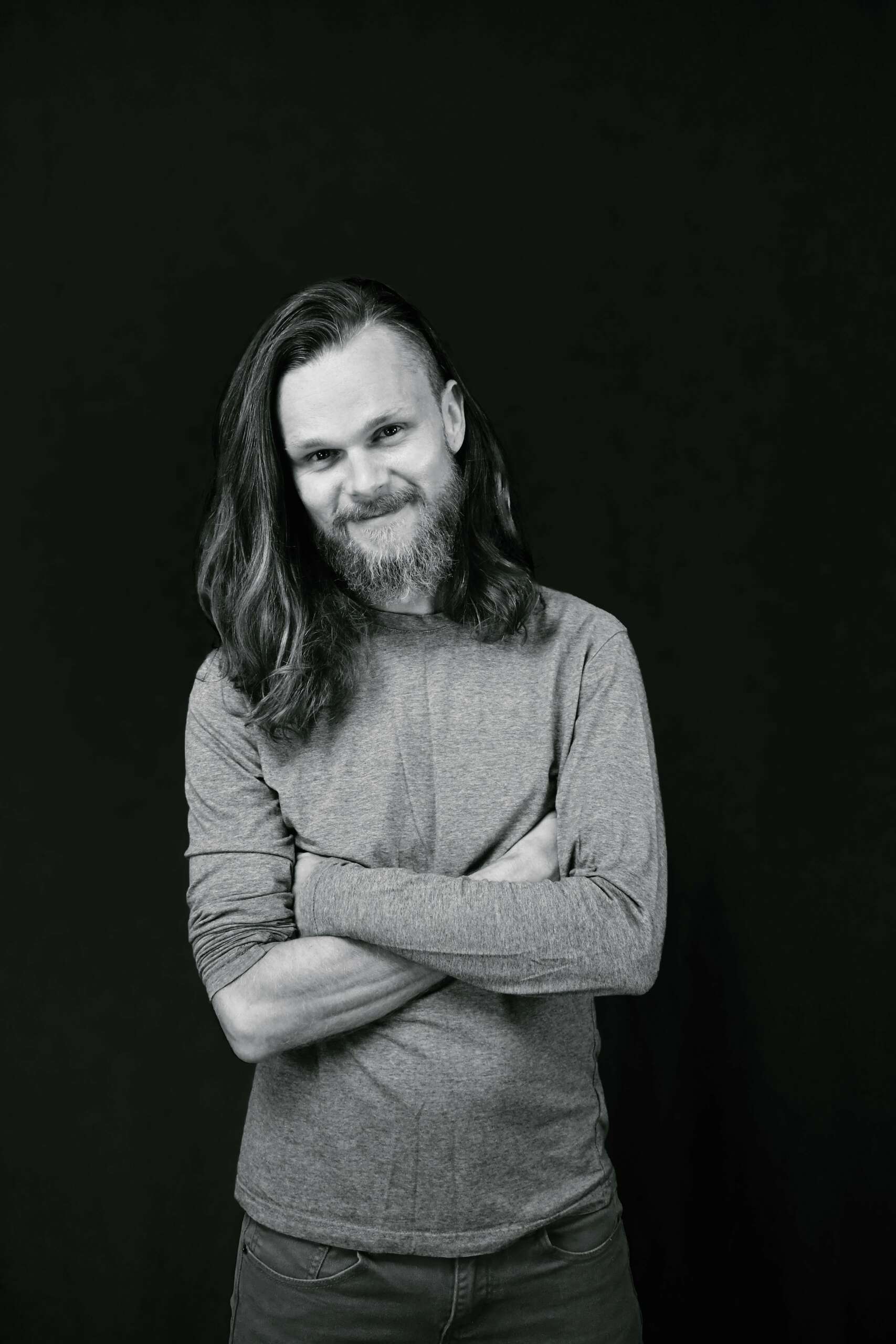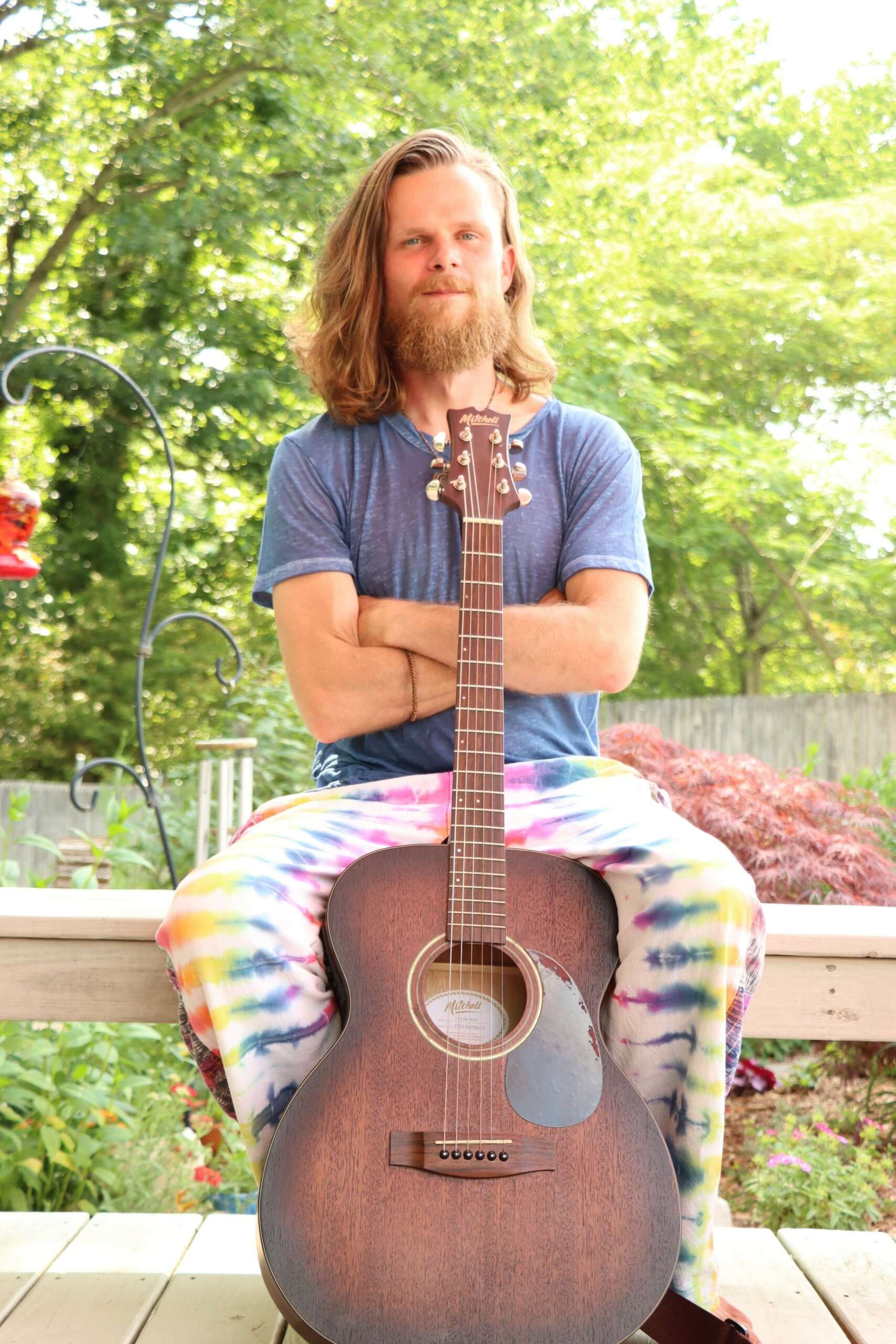We recently connected with Jeremy Anderson and have shared our conversation below.
Jeremy, thanks for joining us, excited to have you contributing your stories and insights. Can you talk to us about how you learned to do what you do?
Music is a language of its own, it transcends words. As a baby, I was blessed with a determination to learn and speak the language of music. This energy within me arose so naturally that it needed to be channeled and refined, or would’ve potentially driven me mad or gotten me in trouble. I would incessantly hum to myself and drum on my desk in school until I ended up in detention. Now, music almost feels like my first language, as I speak it fluently, like it’s my fundamental way of thinking and processing. So learning the “craft” of playing music was virtually involuntary for me, and I knew early on that it would always be a big part of my life and a foundational form of my expression as a human being.
Now, what we’re really talking about here is learning the craft of evolving this joy of unique expression into a sustainable AND meaningful way of life. I believe music is so much more than what has been funneled down and spoon-fed to us for the past century by the music industry oligarchy. I believe music has been with us long before Corporate Babylon and will be here for us long after this system crumbles (think acoustic guitars and drums around the campfire after A.I. Apocalypse).
A fabled paradigm of the music industry is the idea that if you just perform music well enough, you’ll get scooped up by a record label, sign a contract (whatever it may be), and they’ll take care of everything else. Now there are relics of the past still trying to perpetuate that flawed system to new artists naive enough to believe it’s their “big break”, but a lot of those deals often exploit the artist and their interests, just like they often did in the past. Now, the industry has opened wide beyond the record labels’ funnels. Any independent, DIY, from-the-ground-up, small business kind of artist or band has to be all-in, learn whatever skills are required, and wear whatever hat to get the job done. No one will care about your project as much as you do, and in this ever-changing ecosystem, it’s crucial to develop an awareness of how each element works in the music industry. There is always more to learn, and I personally believe the mentality that “I’m just an artist” is limiting and it leaves the artist vulnerable for others to take advantage. Starting off, you get a lot of “you gotta do this” and “you gotta do that”, and there’s a certain level of success that brings out people who see you as a quick money maker, regardless if their service is actually effective for you. There are 1,000 other jobs that depend on the artist just to exist. Many of those are valuable assets to help you grow, but just like any industry, there are opportunists. Once the artist develops their art into business, they must develop the business mindset to help it grow and protect it from exploitation. Running into easily avoidable legal or business issues can really diminish the creative drive.
Every service that only a label used to offer has branched off into their own boutique agency that any independent artist can hire or access on their own. After this, record labels are essentially reduced to loan sharks with finder’s fees. I’m sure there are honest deals and good connections out there somewhere, but I’ve seen too many examples go sideways, and there goes an artist’s decade of their life and potentially their opportunity to pursue what they actually want in music.
I graduated College of Charleston with a Bachelor’s Degree in Philosophy. I’ve always strived to think outside the box about everything, to apply a critical philosophical mind to each situation. This has become a holistic worldview in my flow of life. My art, my work, and my world are all interconnected in my spirituality. In anything I involve myself, I am willing to learn about it as best I can and do my best work that I can in that area. So in the course of starting to write original music, starting to record my own music, and starting to tour around the country, I dove in and focused on developing those necessary skills – performing music, technical troubleshooting, songwriting, producing, booking shows, advancing tour details, time and organizational management, routing a tour, driving a rig, mechanical repairs and maintenance, promoting, photography and video editing, etc.
All of this was a balance between research and trial and error. I am not, by any means, perfect at any of these skills, but I have learned enough to know what I desire and why, and I know who I want to work with to accomplish it. That being said, Blue Avenue Music Group helped me organize so much more outside of my wheelhouse, and a trustworthy team is crucial so the artist doesn’t spread themselves too thin.

Awesome – so before we get into the rest of our questions, can you briefly introduce yourself to our readers.
My name is Jeremy Anderson (aka Positive J). I am the frontman, songwriter, guitarist, singer, trumpet player, and leader of the band, TreeHouse! I am also the CEO/owner of TreeHouse Music, LLC. I have a Bachelor’s Degree in Philosophy, I interned at Thirty Tigers Music Management, Marketing and Distribution agency, I’m technically a Reiki Okuden II, and I’m a certified Scottish Lord. I mention all this because I incorporate all my perspectives and titles holistically in my life and in my music. My band, TreeHouse! is Conscious Music with a blend of Psychedelic Reggae Jam Rock, Roots, Ska, Pop and everything in between.
I started out as a solo musician performing cover songs in Myrtle Beach, SC. This area is very good for covers and tribute acts, and this level of live music in the industry is a viable, sustainable option for anyone who loves performing music. I still enjoy that circuit as a side hustle for my “Positive J” solo show, and I can always kind of fall back into that rhythm on down-time from full band tours to supplement funds for the main project. But early on, I realized my passion was to write and perform my own original music, and to travel the world with a valuable message. So I gathered some old friends to jam with me, wrote and recorded an original album, and started figuring out how to take the show on the road.
In the live music touring circuit, as a brand new artist or act, if you maintain awareness with an openness to learn, the venue staff, sound techs, producers, promoters and other bands will teach you a lot. However, it’s not their responsibility to teach every new artist, especially twice, and sometimes you only get one chance or impression, so the quicker you learn the ropes, the more likely you’ll receive more opportunities to continue working with those people.
I love music, and I believe it has the power to affect people’s lives on the deepest levels. I treat my music mission as a sacred spiritual force and active agent of the positive paradigm shift. Our “product” is intended for holistic healing and therapeutic uses, significantly more than casual entertainment. TreeHouse! is about authenticity in our message and values. This commitment has garnered the band its own unique success and accolades, including national touring reception, festival circuits, Spirit Airlines flight sponsorship, Recreation USA RV tour vehicle sponsorship, a song sync license with a nationally syndicated television network, 7 million streams worldwide, and a few nods from the Marley family.
I want our potential fans, audience and listeners to know that they can listen to TreeHouse! any time on any platform, they can reach out to us any time, we strive to be the most accessible personable independent artist out there, and we want to see them at a live show participating in the full communal experience.
What can society do to ensure an environment that’s helpful to artists and creatives?
I have just a few suggestions to society! I’ve heard at every point throughout my life about how schools are cutting funding for music and the arts. I believe music and creativity have value well beyond monetary measures. Imagine your favorite song as a youth and how it still sticks with you to this day. That’s priceless! Exposure to music and art should almost be a requirement for the first 6 years of one’s life, if not one’s entire life.
Grants are a great incentive, but aren’t always universally applied or equally available. Any gesture from the government that values music and art is a great sign.
This valuation needs to be further evolved in protecting musicians and artists, and the art they create, with legislation guaranteeing a better pay structure from mega corporation streaming services, record label deals, and publishing rights organizations.
Lastly, federally legalize psilocybin mushrooms for medicinal microdosing supplements and watch the nation’s creative therapy flow forth.
What’s the most rewarding aspect of being a creative in your experience?
I’ve had people seek me out to express to me personally how my music saved their life or brought them out of the darkest times. I’ve met children who were raised on our music from birth and know every word. I’ve seen a 70 year old man dance with his 4 year old granddaughter to one of our songs. I’ve played my music in nursing homes and seen my elders’ eyes light up. These moments are beyond me, and I would trade all my money for these true treasures.
Contact Info:
- Website: http://www.treehousetheband.com
- Instagram: http://www.instagram.com/treehousetheband
- Facebook: http://www.Facebook.com/treehousetheband
- Twitter: http://www.twitter.com/lolitstreehouse
- Youtube: http://www.youtube.com/treehousetheband
- Other: http://www.TikTok.com/treehousetheband http://linktr.ee/treehouseofficial
Image Credits
Main Image: Rising Vibes 1st aux pic: no credit 2nd: Island Media Co. 3rd: Photography by Reuben Long 4th: Eric Benner, The Kaya Media 5th: Carl Caltabiano Photography 6th: Savannah Rae, Postcards & Papercuts 7th: no credit 8th: Boardz House Productions 9th: no credit 10th: CupFest 11th: no credit 12th: Reggae Rise Up


